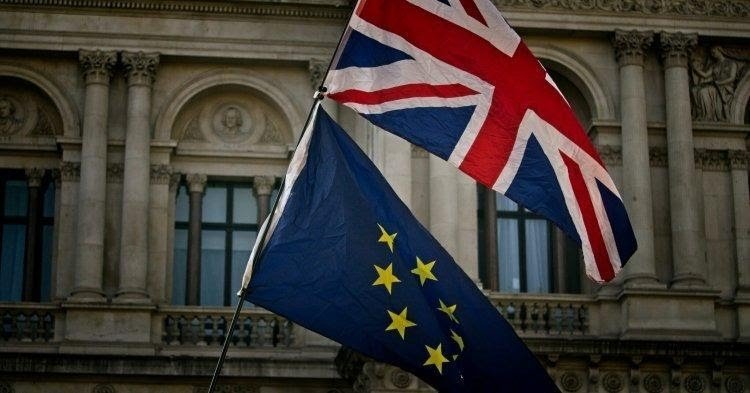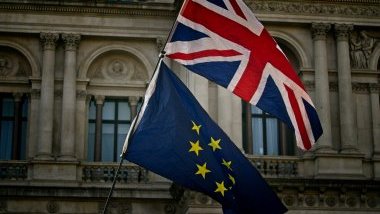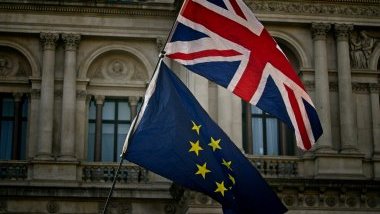Season 1 – 2016-17
On the evening of 23rd June, after a lacklustre campaign fought by Remainers, the United Kingdom filed for a divorce, voting to leave the EU, with 51.9% of voters in favour of Brexit — a rather unexpected outcome. A cause to celebrate for some and a tragedy for others; but one thing remained certain: this issue would continue to shake and divide the country, just as much as the eternal debate over whether jam or cream goes first on a scone.
On 13th July, twenty days after the results were announced, Prime Minister David Cameron resigned, leaving the government in disarray. He was replaced at a moment’s notice by his Home Secretary and Minister for Women and Equalities, Theresa May, who immediately sets the tone: Brexit will happen and the promise to the British public of leaving the EU will be kept. However, the divorce must end on good terms and lead to a positive working relationship.
In October, May announced her intention to trigger Article 50 of the Treaty on the European Union before March 2017, which offers the potential of withdrawing from the EU. A month later, the High Court of the UK ruled against this possibility, stating that only Parliamentary approval could set the departure procedure in motion, a verdict which would later be confirmed by the Supreme Court.
In her speech at Lancaster House in January 2017, Theresa May stated that leaving without an agreement is better than leaving with a bad deal, an important detail given the slow proceedings of negotiations at the time.
On 29th March, Theresa May wrote to the then President of the European Council, Donald Tusk, making the UK’s intention to leave the EU official. A two-year countdown then began to finalise negotiations in anticipation of an agreement to leave the EU.
In mid-April, in order to strengthen the Conservative’s majority in the House of Commons, Theresa May announced that early elections would be held in June. They would not, however, have the success the party was expecting: the party lost its majority and was forced to form a coalition with the Northern Ireland’s Democratic Unionist Party (DUP) in order to remain at the helm.
In short, an underwhelming first season during which the Leave campaign’s success is drowned out by a succession of problems undermining the Conservative’s position.
Season 2 – 2018
2018 marks the beginning of disappointments for Theresa May. The white paper on Brexit, known as the Chequers Plan (Chequer being the name of the British Prime Minister’s country residence during their holidays or when not residing at Downing Street), published on 12th July provokes an outcry among members of government, and resignations followed. Among those to resign was a certain Boris Johnson, Minister of Foreign Affairs at the time. According to critics, the white paper was a watered-down version of what Brexit should be.
There was also outcry in Brussels, which saw the Chequers Plan as a way for the UK government to cherry-pick, picking and choosing the policies which they wanted to adhere to, and those it didn’t, which in turn would undermine the system of a single market. May was castigated from all sides, particularly by the Irish, whose border with its southern neighbours was exploited by both the EU and UK, after a proposal intended to solve these problems under the nice name of Backstop.
On the one hand, it is the very integrity of the UK that is threatened, while on the other, Ireland must retain the same legal provisions as the EU in terms of standards and open borders so as to not undermine the Good Friday Agreement which, in 1998, had enshrined the peace between Unionists in the North and Nationalists in the South.
On 25th November, a draft divorce agreement was finally reached but had to be passed through both parliaments in Westminster and Strasbourg. May then had to revise her copy to include an EU-UK customs union to put an end to the difficult Irish issue.
December arrives and May barely survives a censure motion (a motion of disapproval). She is forced to promise her resignation as leader of the Conservative party before the next elections, following violent backlash against her proposed Brexit agreement.
Season 2, full of pitfalls does not proceed well but ends with Theresa May remaining Prime Minister. Despite that, she is not out of the woods just yet.
Season 3 - 2019
2019, annus horribilis for Theresa May? Her political situation as head of government has visibly deteriorated. Her proposal for an EU withdrawal agreement defining the conditions of the country’s departure was violently rejected by the House of Commons in three consecutive votes in January (432 against 202), then again on the 12th and 29th March, the original Brexit dates.
In light of the tense situation between the Prime Minister and Parliament, as well as both sides’ inability to agree on the terms, May was forced to request an extension of the transition period until 30th June. European leaders then approved a flexible deadline of the 31st of October.
On the 23rd of May, the country nevertheless took part in European elections. The will of the people to get Brexit over with was apparent by the huge victory of ultra-conservative Nigel Farage’s Brexit Party. The next day, May announced her resignation as Prime Minister and the leader of the Conservative party with effect on the 7th June, after failing to have seen Brexit through.
On the 24th of July, following an internal election among the Conservatives, Boris Johnson emerged triumphant against his opponent Jeremy Hunt and entered 10 Downing Street as the new Prime Minister.
A month later, Brussels refused Johnson the retraction of the Backstop clause which regulated the issue of Irish borders. He then decided on the 28th of August to prorogue (suspend) parliament for five weeks, starting on 9th September, which in turn provoked fury from the opposition who feared a divorce without an agreement. They saw that the date the UK would leave (then set for the 31st of the following month) was rapidly approaching and denounced Johnson’s attempt to muzzle the opposition so as to pass his bill through Parliament.
The opposition also saw Johnson’s move as a way of getting around the Benn Act (passed 9th September), which prohibited leaving the EU without an agreement, or without agreement from parliamentarians before 19th October leaving just 5 days for debate on Johnson’s bill. Because of the Benn Act, the Prime Minister was forced to request another extension of the Transition Period, granted on 28th October by the European Council, the new deadline was set for 31st January.
In mid-December, a general election, approved in October by the House of Commons, once again reflected the will of the British people to get Brexit done, a victory with a Conservative majority, reinforcing May’s loss.
After May’s decline, Boris Johnson ended season 3 ready to fight, and in a strong position in the House of Commons.
Season 4 - 2020
On 23rd January, after a ‘soft’ restart for British MPs, a new withdrawal agreement proposed by Johnson was put to the test in Westminster, then in its European counterpart without apparent difficulty.
This marked the start of a new 11-month phase that stretched until 31st December 2020, giving the UK a chance to negotiate new agreements with the EU, especially on trade, before it left the single market. On the 31st December at 23.00 (Brussels time), the UK flag was taken down from display at the EU. It was official: the country was no longer a member of the European Union.
After stalled negotiations due to the first wave of COVID-19, talks resumed with both parties unwilling to concede. Michel Barnier, European Commission’s Chief Negotiator, said that the UK was playing with fire and losing precious time by refusing to collaborate. Points of tension included fishing in the North Sea and provisions on the so-called ‘level playing field.’
In parallel with their negotiations with Europe, the UK tried to negotiate with other key economic partners, in particular across the Atlantic. The dim hope of reaching a deal with Donald Trump—who shares Boris Johnson’s childish attitude and portrayal as a lone ranger in foreign trade policy—was reduced to ashes after Joe Biden’s victory in November.
While negotiations with Brussels are still ongoing, the British now fear that the UK will have to leave the single market without an agreement, which would mean returning to WTO trade rules with expensive tariffs, synonymous with an economic shock.
With less than a month to go before the UK irrevocably leaves the common market, Johnson has asked businesses to be ready for anything. In a country already battered by the health crisis, the government has very little time to reach an agreement, which does not bode well for society and businesses.
Season 4 is nearly over, with no agreement in sight at the moment and negotiations seemingly at a standstill. The global health crisis has added a further constraint to the UK which was already gripped by uncertainty and time pressures as the deadline fast approaches.
Either way—with or without an agreement—Brexit will have serious consequences for the country. Two reports, one published at the end of August by the London School of Economics, the other published in November by the Office for Budget Responsibility, predict that the long-term economic impact of Brexit will be far greater than the impact of the pandemic. Both expect dramatic losses of up to 10 GDP points.
Four and a half years after the referendum, a lot remains unknown. Will the UK request another extension due to the health situation and the second lockdown? What will really happen if the UK leaves without an agreement? The length and complexity of Brexit have dissuaded even the boldest of Eurosceptics.
In any case, the British government is not planning a Season 5 of its saga by popular demand, but in view of current events, nothing is less certain. To be continued, then…





Follow the comments: |
|
